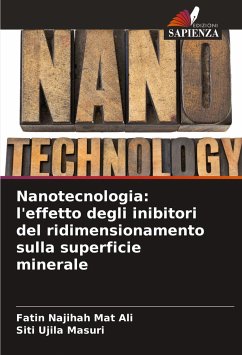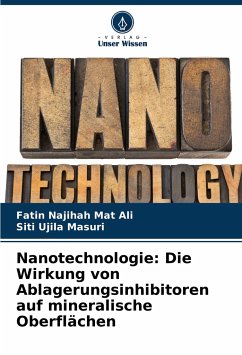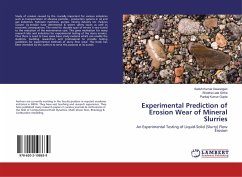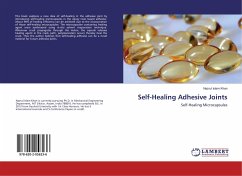
Nanotechnology: The Effect of Scaling Inhibitors on Mineral Surface
Versandkostenfrei!
Versandfertig in 6-10 Tagen
22,99 €
inkl. MwSt.

PAYBACK Punkte
11 °P sammeln!
This study represents the finding on the effect of particle size of different scaling inhibitors on the adsorption performance after undergoing the static adsorption test. In this study, it focuses on reducing the scaling problems as scaling seems to be a main problem faced in the oil and gas industry due to the fact that it will result in the malfunction of major components such as turbines and pumps. Hence, three different scaling inhibitors which are the commercial DTPMP, normal sized DTPMP and nano sized DTPMP inhibition efficiency towards the mineral surface are studied through TEM and FE...
This study represents the finding on the effect of particle size of different scaling inhibitors on the adsorption performance after undergoing the static adsorption test. In this study, it focuses on reducing the scaling problems as scaling seems to be a main problem faced in the oil and gas industry due to the fact that it will result in the malfunction of major components such as turbines and pumps. Hence, three different scaling inhibitors which are the commercial DTPMP, normal sized DTPMP and nano sized DTPMP inhibition efficiency towards the mineral surface are studied through TEM and FESEM analysis. Theoretically, the smaller the particle size of the scaling inhibitor, the easier it can be adsorbed onto the mineral surface. Furthermore, it will have a higher diffusivity rate where it can reach the mineral surface quicker and prevent the growth of the scales. The relationship between the particle size and the diffusion coefficient relates to the existing Stokes-Einstein equation is further analyzed by observing the adsorption performance of each scaling inhibitors. Overall, it is necessary to develop a more efficient scaling inhibitor for this purpose and its inhibition perfo












